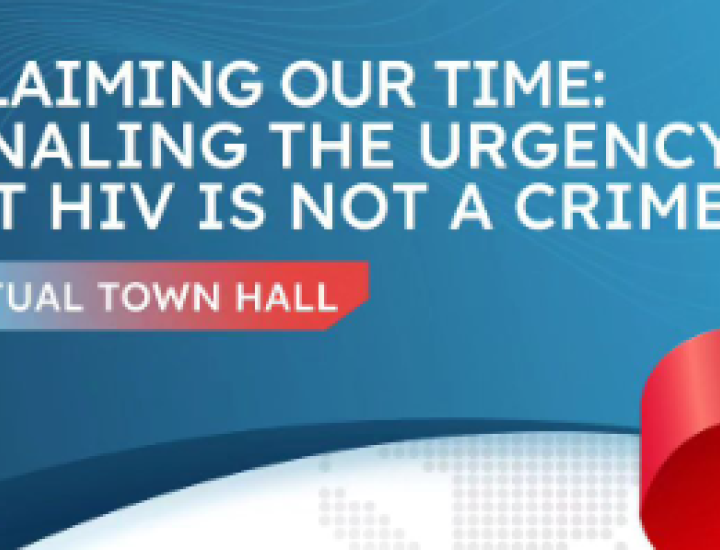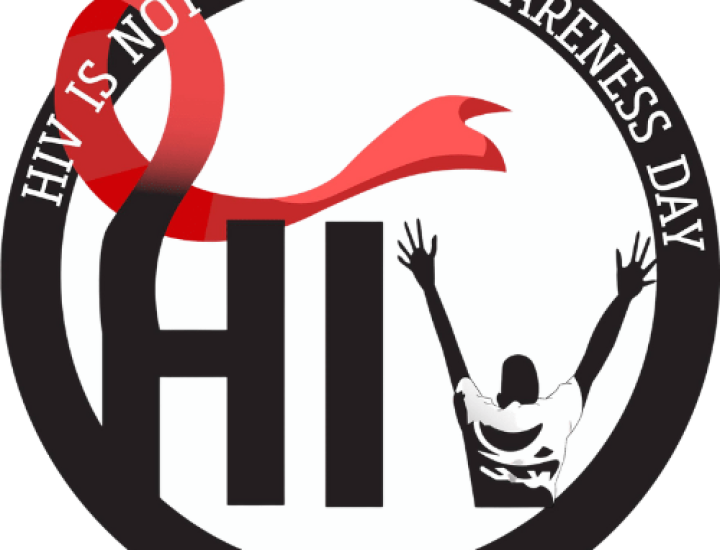The Body: We Keep Ignoring HIV Criminalization

This article was authored by Juan Michael Porter II of The Body calling out the lack of priority given to addressing HIV criminalization within the HIV movement.
--
We Keep Ignoring HIV Criminalization
Oct 10, 2023
By Juan Michael Porter II
For more than a decade, the SERO Project and Center for HIV Law and Policy (CHLP) have been working to abolish laws that specifically target people living with HIV. Unfortunately, their agenda and efforts to sound the alarm around HIV criminalization have rarely been given the prioritization they deserve throughout the HIV movement.
Instead, numerous HIV-based conferences and meetings focus on innovations in care and science, without considering what will happen to people with HIV if they are sent to prison simply because they are doing what anyone else in the world is encouraged to do.
Where Did HIV Criminalization Laws Come From?
As the Centers for Disease Control and Prevention (CDC) notes, during the early days of the HIV epidemic, “many states implemented HIV-specific criminal exposure laws to discourage actions that might lead to transmission" (i.e. sex). The CDC goes on to explain that “many of these state laws, then and now, criminalize actions that cannot transmit HIV – such as biting or spitting – and apply regardless of actual transmission, or intent.”
Though it acknowledges that these laws can still be applied today, regardless of intent or actual transmission, the CDC’s explanation fails to state that HIV criminalization laws were inspired by AIDS hysteria and were specifically written to criminalize “intentional exposure to HIV“―a distinction that presumed that people with HIV were intentionally or “knowingly” transmitting the virus to others.
To understand the social climate under which many of these laws were passed, one need only look at a national survey conducted by the Los Angeles Times in 1987. That survey, which included 2,095 people, revealed that 42% of respondents believed some civil liberties should be limited to deter the AIDS epidemic, 68% favored “criminal sanctions against people with AIDS who remain sexually active,” and about half agreed with “adding AIDS to the list of infectious diseases that require quarantine.”
Keep in mind that this era was governed by Ronald Regan’s feckless public response to the AIDS crisis, presidential advisors who privately laughed at people living with HIV, and openly homophobic elected officials who fought funding for HIV treatment and claimed that the epidemic was caused by “deliberate, disgusting, revolting conduct.”
Despite Education, Stigmatizing Laws Still Exist
But even as treatment and prevention options as well as education about how HIV is transmitted have increased over the past three decades, criminalization laws have continued to penalize people with HIV for a range of behaviors that would result in no punishment for people who are seronegative.
For instance, Minnesota’s criminalization law charges people with HIV who engage "in sexual penetration with another person without first informing that person" of their serostatus. As CHLP notes, "'sexual penetration' includes anal, vaginal, and oral sex, as well as any penetration by any part of a person’s body or by an object into another person" and "applies even when transmission cannot occur." For example, through oral sex or vaginal sex between two women.
HIV criminalization laws in Louisiana and Arkansas are even worse. Their punishments are levied against people with HIV who do not first share their status before having sex, even if they are virally suppressed and therefore incapable of transmitting the virus. The law is even more severe in Arkansas, where people with HIV are required to share their status not only with sexual partners but also with dentists before receiving service, even though a 1998 Supreme Court case involving dentistry (Bragdon v. Abbott) led to HIV being classified as a disability and therefore illegal to discriminate against.
Legalized Discrimination and Perceptions of Malicious Intent
The problem with these laws goes beyond turning people with HIV into second-class citizens who are forced to mind the sexual health of people who are seronegative. One of the most frightening aspects of these laws is that they can be applied even if a person does first share their HIV status.
Here’s why: If charges are filed, unless a person can prove without a doubt that they have shared their status before having sex, a legal decision will rest solely on one person’s word against another. Except that in the case of HIV criminalization, it would be the word of a highly stigmatized individual before a jury that has been primed to disdain them.
This double standard of expecting people with HIV to disclose their serostatus and to prove that they did is why the recently passed activist Tiffany Marrero-Stringer had her potential partners sign disclosure contracts confirming that they knew she was living with HIV and that they were willingly having sex with her, before she would engage in the act. Far from being paranoid, Marrero-Stringer used these contracts because she was aware that HIV criminalization laws were written from the perspective that any action she might take would be done with malicious intent.
When seen in that light, it should come as no surprise that HIV criminalization laws have done nothing to reduce HIV transmissions. If anything, they have likely suppressed HIV testing and further stigmatized people living with HIV. And, as if to add insult to injury, in some states, these laws tack on enhanced punishments against people living with the virus―such as sex workers―or include mandatory sentences, and compel prosecuted individuals to register on sex offender registries upon their release from incarceration.
It can be reasonably argued that these added punishments serve no other purpose than to further harm prosecuted individuals with HIV. After all, in a move that betrays their anti-scientific application, they are also applied against people with HIV who spit on others―which cannot transmit the virus.
Given this overview of misinformation, it is not unreasonable to assume that HIV criminalization laws were created solely to limit what people living with HIV can do. After all, in 1994, Illinois’ Supreme Court upheld an HIV criminalization law that barred “people with HIV from engaging in conduct that could spread” the virus. While sharing needles for drug use and donating blood was included in that list of conduct, the primary focus of these laws have always been on banning one of the most natural acts between consenting adults: sex.
It should be noted that in 2021, Illinois became the second state after Texas to fully repeal its HIV-specific criminal law. But as the CDC notes, as of 2022, 35 states still criminalize people living with HIV through HIV- or STI- (sexually transmitted infections) specific laws.
HIV Criminalization Laws Are Still Stuck in the 80s
When one considers the current landscape of Republican-driven attacks on transgender existence, people who are exposed to HIV, HIV prevention, and funding to fight global AIDS through PEPFAR, it becomes clear that our society has not progressed far enough beyond the AIDS hysteria that defined the late ‘80s and ‘90s. Though we can now articulate how to prevent HIV transmissions, too little has been done to guarantee access to people who are disproportionately affected by the virus and who are thwarted when they seek help.
But whether one has access or not, HIV criminalization places a target on the forehead of every single person living with HIV in this country. And if going to jail for HIV prosecution hinges on whether or not someone believes you, then no one living with HIV can reasonably say that they are free.
Having edited stories about Robert Suttle, whose life was upended after he was falsely accused of not sharing his HIV status, I am worried that too many people in the HIV movement are avoiding talking about HIV criminalization or ending it. While attending conferences where criminalization is almost exclusively discussed by members of the SERO Project and Center for HIV Law and Policy, I often think that people who are silent would rather we focus on cure research and messages that encourage people who are serophobic to stop fearing us.
And while those are worthy endeavors, I think it is time for us to accept that―just as some people will continue spewing racist ideology no matter how often we prove they are wrong to do so―some people are always going to fear people living with HIV regardless of what the science says.
But instead of suggesting that we disinvest from those educational efforts, I want to ask my peers in this movement to work towards abolishing HIV criminalization whenever they meet. Our collective agenda is already packed, but I think it is possible to talk about the intersection of testing, treatment, prevention, and HIV criminalization. Without that final essential component, we are sending our most vulnerable peers into a gunfight armed solely with kumbaya songs about HIV no longer being a death sentence, while ignoring that it could be a devastating prison sentence.
© 2023 HealthCentral LLC. All rights reserved.

